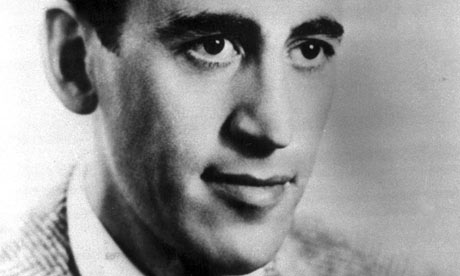 Word is spreading that reclusive author JD Salinger, author of the seminal book “The Catcher in the Rye,” filed suit in U.S. Federal Court in Manhattan yesterday over an anonymous author’s unauthorized so-called ‘sequel.’ The writer, going by the name John David California, planned to publish “60 Years Later: Coming Through the Rye” through a Swedish publisher–that is, until 90-year-old Salinger filed the suit, claiming the writer doesn’t have the right to use his famous character, Holden Caulfield.
Word is spreading that reclusive author JD Salinger, author of the seminal book “The Catcher in the Rye,” filed suit in U.S. Federal Court in Manhattan yesterday over an anonymous author’s unauthorized so-called ‘sequel.’ The writer, going by the name John David California, planned to publish “60 Years Later: Coming Through the Rye” through a Swedish publisher–that is, until 90-year-old Salinger filed the suit, claiming the writer doesn’t have the right to use his famous character, Holden Caulfield.
There are, naturally, all sorts of intellectual property laws, copyright laws, and the like at play here. But what about moral and ethical considerations?
Everyone knows Mr. Salinger is notoriously protective of his work. He’s never allowed his writings to be turned into films, has indeed sued in the past to keep private letters, well… private.
So how can someone with even the most remote understanding of the character of Holden Caulfield–himself painfully private, even if he longs to be understood–ever dream of betraying Caulfield’s creator in such a fashion? It’s one thing to fantasize about a Caulfield all grown up, grown elderly, as this book purports to do. It’s another to actually put it out there. Perhaps this writer should have done as Salinger has done since he decided to retreat from public life. Write for the love of writing, not try to profit off someone else’s creation.
As a writer myself, I understand that, once published, my ideas do exist in the public domain. However, that’s what copyright laws are for–to limit others’ use of my ideas and characters. And I acknowledge there’s a long tradition of piggy-backing on classic writers’ genius, both to make a point and to make a profit (one of my favorite plays is actually Tom Stoppard’s Rosencrantz and Guildenstern Are Dead, which plays off Shakespeare’s Hamlet brilliantly). Yet when the author’s still alive, and his wishes are so well known, isn’t it unethical to do something like what John David California’s book purports to do?
Artistic license or unmitigated chutzpah? You make the call.
Photo: AP
